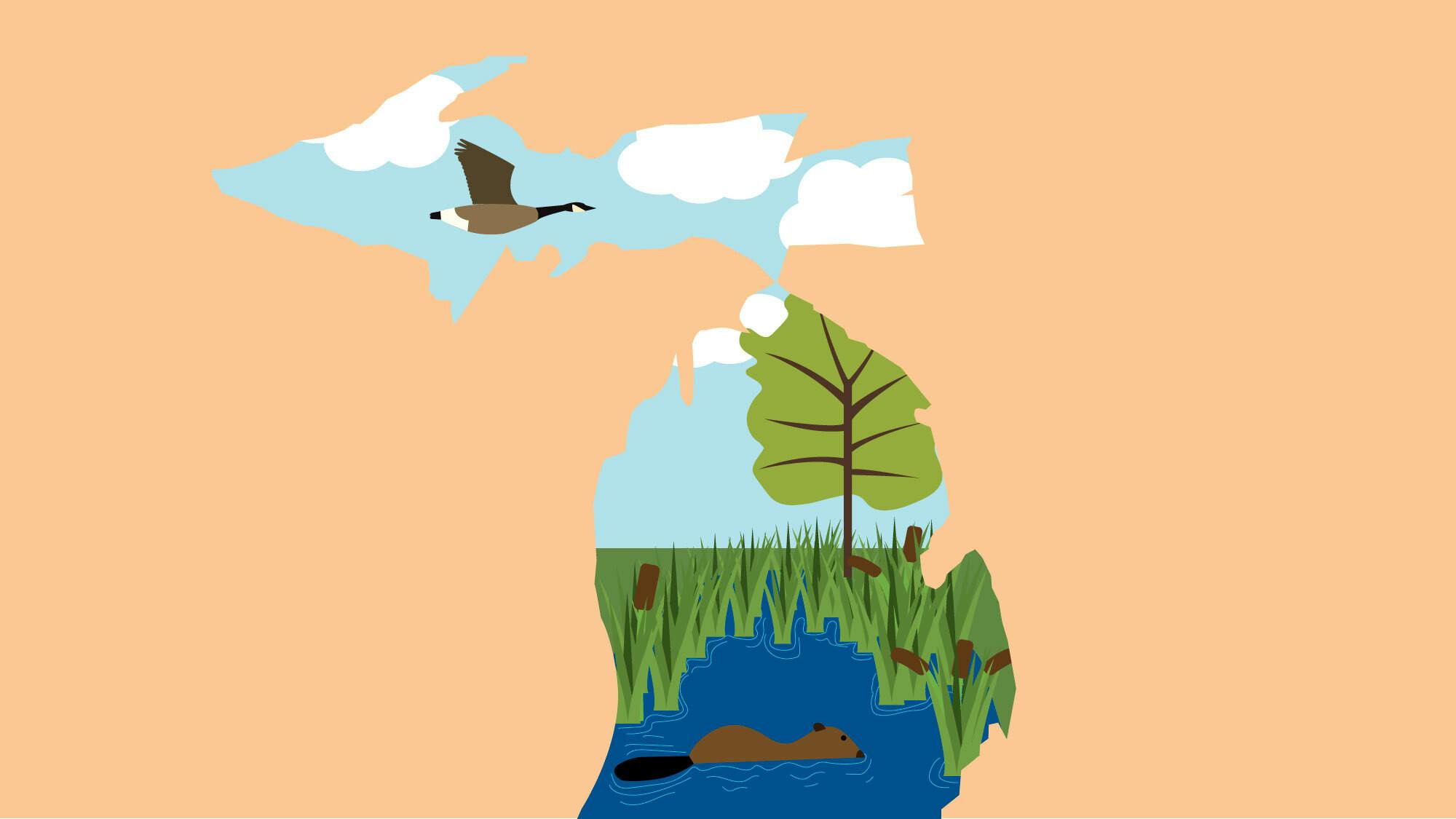Michigan State University was built on marshy land, looking more like a wetland than a college campus when it was founded. Many institutions and infrastructure in Michigan have been based in wetland areas due to the Great Lakes, yet wetlands are not seen as frequently as they used to exist in the state.
In early March, Gov. Gretchen Whitmer signed an appropriations bill, which allocated $10 million to help with the restoration and preservation of Michigan's Great Lakes Coastal Wetlands.
This money would go directly to the Michigan DNR to support efforts of sustainable practices in continuing the once-thriving wetlands.
Ducks Unlimited is the company spearheading the use of the $10 million to work closely with the DNR to identify wetland areas that need extra support and plan the engineering and contracting of the restoration that has to take place. Communications Coordinator for the Great Lakes and Atlantic region of Ducks Unlimited Joe Genzel feels strongly about the importance of wetland conservation.
The work of Ducks Unlimited, Genzel said, includes building levees where water can be managed with structural systems to allow natural vegetation to grow, increasing the biodiversity that may be lost by wetland areas that have been corroded.
“The reason all of that is important to the state of Michigan is … it's been proven to increase the overall health of water quality, which is really critical to watersheds like Saginaw Bay, and of course, Lake Erie,” Genzel said. “All the Great Lakes wetlands are really key to keeping the water quality in these lakes high.”
Ignorance around the importance of wetlands is not a new idea, according to Genzel. In the early days of European settlement, settlers believed that wetlands took up space and didn't function with the rest of the ecosystem.
Sustainable Business Association President Noelle Chan said just because wetlands are not scenic, it does not take away from their environmental importance.
Chan is thrilled that Whitmer passed budget allocation to this, hoping that this allows wetlands to have a place on the state environmental politics stage. Chan sees environmental services today doing more to protect what could be at stake.
Chan said she breaks up the importance of the wetlands in four sections: provisioning, regulating, supporting and cultural.
The provisioning aspect of wetlands provides materials such as timber, fresh water and fresh air to the ecosystem. The act of regulating includes the filtering of water, using wetlands as a watershed to filter out fertilizer and pesticides that could otherwise permeate the Great Lakes. Supporting includes soil formation and nitrogen cycling, exponentially increasing the agricultural productivity in Michigan.
The culture aspect, Chan said, is the most prevalent because of Michiganders enjoying the Great Lakes for recreational activities.
Chan outlined the National Environmental Policy during the presidency of Donald Trump as a pivotal time of change for the wetlands in Michigan. The Trump administration changed the definition of the Waters of the United States, or WOTUS, which designates what waters would be protected by the U.S. government's regulations. Wetlands, Chan said, were left out of this new definition.
Chan said that this would possibly allow large construction projects to overrule marshy and wetland areas, even if this would mean getting rid of flood bases that protect that very infrastructure from flooding problems.
“It's destroying the environment,” Chan said. “The definition of WOTUS was changed under Trump, so a lot of regulations got rolled back nationally there. I think that Whitmer is directly combating that by … still (working) our best to allocate some funds and protect it.”
Fisheries and wildlife senior Jessica Meister said Michigan has worked to manage the conservation and make sure that they’re more involved than other states, being one of the only two states along with Maine to have their own regulatory systems for wetlands.
However, Meister said that when the state does not take the time to conserve the high quality of wetlands, they can be overrun with invasive species such as reed canary grass and other phragmites, seeing this allocated money as necessary to remove the species after they have settled.
Mesiter, a member of the MSU Fisheries and Wildlife Club, said she studied the evolution of certain species that have evolved to live in the unique wetland habitat. One species she studied was the Mitchell’s Satyr butterfly, one of the most endangered species of butterfly that relies on wetlands to settle in fens or flowers that only bloom with groundwater that comes with the wetland habitat.
“A lot of species rely on that transition from water to land,” Meister said. “They have access to either groundwater or other unique water systems because all not wetlands are from groundwater. It's just so necessary, especially for frogs, amphibians and waterfowl. The Massasauga rattlesnake and other endangered species also need wetlands because (they like) to transition from uplands to wetlands for breeding season and hibernating.”
With these problems at stake without this money, Genzel said any time where funds are allocated to Michigan’s wetlands is historic, knowing they will always be looking for more funding to encourage more conservation efforts.
Support student media!
Please consider donating to The State News and help fund the future of journalism.
“There's only maybe a quarter million acres of wetland remaining,” Genzel said. “That's over 50% loss especially around coastal wetlands. As you get into cities, you're going to see an even increasing loss, especially around rivers. So, anytime you can advocate and secure money for more wetlands and wetland health, it's definitely a positive thing for both wildlife and the people of the state of Michigan.”
Discussion
Share and discuss “Whitmer allocates $10 million to wetland conservation” on social media.







